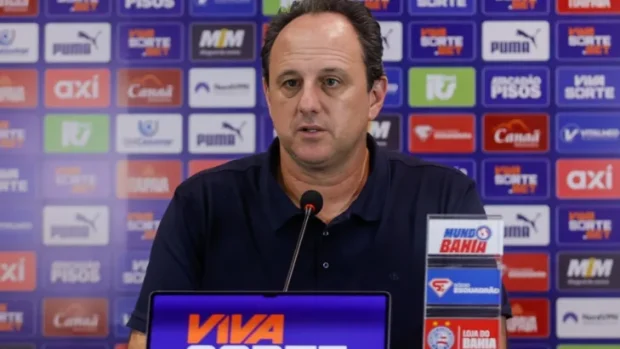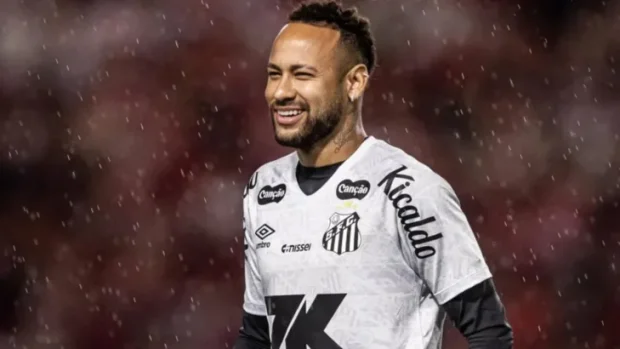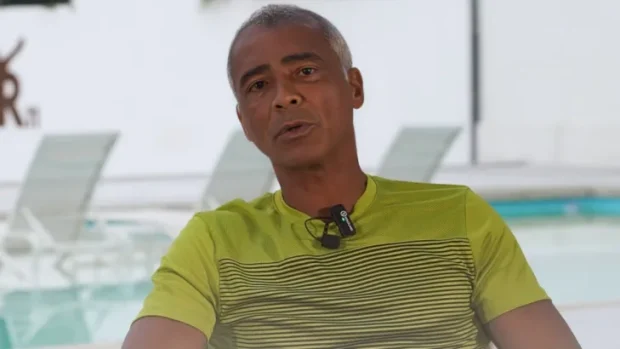Be like Jay Underwood, Quarterback Dads.
The father of Michigan super freshman Bryce Underwood is one of the good ones. There are good ones despite the constant barrage of headlines about Quarterback Dads gone wild — Carl Williams (Caleb’s dad) torching his son’s employer publicly, Nic Iamaleava (Nico’s dad) bungling a good situation at Tennessee, Deion Sanders (Shedeur’s dad) doing whatever he did to contribute to a fringe NFL first-round talent going in the fifth round, and so on.
Advertisement
Those are three success stories at the glamor position of American sports, of course, which means some parental credit must be due. But some of the behaviors match that of countless Quarterback Dads whose sons’ names aren’t known, whose misdirected ambition and absence of perspective make them college football outlaws of sorts.
“Quarterback Dad” is generally not a compliment among the college coaches I talked to for this piece, some of whom have stopped recruiting quarterbacks who checked every box except: Can we tolerate his dad?
“We’re picking the dad almost as much as we’re picking the quarterback,” said a Power 4 head coach, who was granted anonymity, like others in this story, so he could speak freely on the subject. “Every person in this business has horror stories.”
The explosion of money in the game in the past few years has made things only more toxic. But I’m here to tell you there’s hope.
There’s hope, in part because, at some point, college athletics will become less chaotic. That’s probably going to require collective bargaining at some point. But it will happen, and it means player movement will slow down and compensation will be fairly determined by professionals. Less chaos in college football should mean less chaos among its various factions.
Also, at least there’s awareness of the Quarterback Dad dynamic. We’re talking about it. People are trying to make things better, including the guy who wrote the actual book on Quarterback Dads, the guy who presents Jay Underwood as a “how-to” of sorts for those with pigskin-slinging children.
Donovan Dooley is a prominent quarterbacks coach who counts Bryce Underwood among his clients, has worked with the family for years and noted in that 2022 book (written with sportswriter Teddy Greenstein and aptly titled “Quarterback Dads: Wild Tales from the Field”) that Jay had previously been “the classic Quarterback Dad, in every maddening sense.”
Advertisement
This included Jay’s proclamation, when Bryce was closer to elementary school than graduation, that he could “be the LeBron James of football.” Invoking the (arguable) GOAT of another sport is a classic sign of the Not-In-Touch-With-Reality Dad, and Jay’s admitted overzealousness in critiquing his son screamed Helicopter Dad. These are two of the 12 types of problematic Quarterback Dads detailed by Dooley (he lists three good types).

Bryce Underwood’s dad, Jay, has remained largely in the background and allowed his son to enjoy the spotlight of being the No. 1 recruit in the nation. (Mike Mulholland / Getty Images)
It all changed when Jay, with Dooley’s help, realized how strained his relationship with his son was getting. To save it, he needed to revert to being just a dad and take the pressure off his son.
“Total turnaround,” Dooley, whose Quarterback University is based in Detroit, said last week. “Now, Jay stays in the background a lot. Hell, I don’t even know if some of the staff at Michigan know him. It’s usually not that way when your son is a prime guy like this, but he sits back and lets Bryce do his thing.”
To that point, Underwood could not be reached to speak on the topic.
This is the kind of reform Dooley seeks to foster. Not that he’s seen enough of it. The urge to help goes back to his Detroit childhood as a future high school and college quarterback, dealing with a father he described as “crazy as hell” when it came to pushing him in football.
The book inspired an outpouring of letters and emails, Dooley said, from fathers who apologized for their behavior and from both mothers and fathers who thanked him for forcing moments of clarity with his storytelling.
But Greenstein and Dooley wrote it in the early days of the dirtiest phrase in college football coaching: “NIL and the transfer portal.” For folks in that profession, NIL, the transfer portal and the Quarterback Dad make up the unofficial unholy trinity of the sport.
“It’s heightened the anxiety around everything,” Dooley said of Quarterback Dads now having seven-figure paydays as incentive and free movement as leverage. “I mean, you’ve got dads, not long after kids get out of the womb, kids that are 5 years old, coming up with logos and slogans for social media to get attention. You’ve got dads talking dollar amount with coaches before they ever talk football or academics.”
Advertisement
How bad is it for some? One Power 4 coach contacted for an interview on Quarterback Dads replied: “Nah. I’m staying away from that.”
A Group of 5 head coach said he loved the topic and that it should be made into a documentary, but was fearful of telling any specific stories because “if it ever got back to me, I’d never get a quarterback again, ever.”
He did explain the difference between dealing with problematic Quarterback Dads now and five years ago.
“A dad texts, ‘Why aren’t we doing more quick game with my son? Why so much dropback game?’ S— like that,” the coach said. “Back before the portal, you text back something like, ‘Man, let’s sit down after the season and talk about this if you feel that way.’ Now? You pick up the phone immediately and talk through it. You explain why you’re doing what you’re doing, in detail.”
This isn’t necessarily all bad, the coach said, because “we really should be giving our kids more ‘whys’ in today’s game and we should be thinking about it collaboratively.”
It’s just harder to be collaborative with someone who, unlike the quarterback in question, doesn’t play the game and doesn’t know the concepts or what it takes to execute them. This can be the mark of The “We” Dad in Dooley’s book (the dad who thinks he’s also part of the team), The Stat-Hungry Dad or The Really-Not-In-Touch-With-Reality Dad. Or all three.
“Some of them, the wild, wild ones, are all 12,” Dooley said of categories that also include The Reminiscer, The Jealous Dad and The Braggin’ Dad. “Those are the ones who read the book and say, ‘I’m none of those.’ I’m like, ‘Dude, you’re all of those.’ ”
Dooley got to know the Iamaleavas on the recruiting circuit and considers Nic Iamaleava (who did not respond to a request for comment) a friend. He also considers him a cautionary tale.
Advertisement
As a Group of 5 assistant coach said about Nico Iamaleava’s abrupt departure from Tennessee amid reported financial conflict: “The kid’s in a perfect offensive system for him, he’s paid $2 million a year, even as a freshman to not play and redshirt, and you leave that for UCLA? That’s not the kid, that’s the people around him.”
As an outspoken expert on the topic, Dooley has also become a resource for college coaches in the past few years. This is not unlike college coaches who give frank assessments of their former players’ personalities for interested NFL personnel people. In this case, coaches hit up Dooley on what he’s observed and/or heard about various Quarterback Dads.
“I’m never going to say anything too negative,” Dooley said. “My code word is, ‘Yeah, that dad is wired a little different.’ That’s my polite way of saying, ‘S—, be ready for everything you don’t want.’”
What they want is what we all should want, which is for parents to not make life more difficult for their children by mangling experiences that should be positive and enriching.
If you’re like me and you’ve spent a lot of years as a parent around a lot of different sports, you’ve seen some ridiculous behavior from alleged adults. Economics, both in terms of the cost of higher education and the rewards possible for the tiny fraction of a fraction of elite athletes, dictates some of this.
It does not excuse completely missing the point of what both sports and parents are supposed to be.
“Sport is sacred,” Vanderbilt coach Clark Lea said. “It’s sacred because it’s a vessel of self-discovery. You learn to belong to yourself, so you can belong to something bigger. Sport is a place of belonging and community where you can gather a large body of people around one mission. That’s special, that’s sacred, but sports culture is sick right now.
Advertisement
“And you can experience that at any level of competition. There are a lot of parents who are focused on the performance of a child rather than the development of a child.”
This is not new.
I’ll keep unnamed the Quarterback Dad who used to call me frequently about 20 years ago, once assuring me the very bad team I covered had as much talent as Pete Carroll’s national champion USC Trojans and was poorly coached — that was very untrue, and he was very inebriated.
The late Marv Marinovich remains the standard of Quarterback Dad dysfunction, as first revealed in the 1988 Sports Illustrated story “Bred to be a Superstar” by Doug Looney about Marv’s QB son, Todd Marinovich. Marv used Eastern Bloc training methods to build him into a passing machine and essentially hijacked his childhood. Todd was a star recruit prohibited from eating fast food, a USC quarterback arrested for cocaine possession, a failed pro and now a dad speaking out on the right way to nurture kids in sports.
Plenty of Quarterback Dads care about that. Some of them fall into Dooley’s good categories — The Helpful Dad, The Hands-Off Dad, The Coach Dad. Archie Manning, who has said the 1988 SI story on Marinovich spooked him into taking special care with his boys, falls into all three.
So does Dave Henigan, said Memphis coach Ryan Silverfield. Henigan is the head coach at Ryan High School in Denton, Texas. His son Seth just wrapped up four years of starting for the Tigers. Opportunities to leave and make more money emerged. Conversations about fair compensation happened, as they should.
Development, relationships and happiness prevailed. Seth threw for more than 14,000 yards, and now he’s with the Jacksonville Jaguars as an undrafted free agent.
“Stability should matter,” Silverfield said. “And transparency. A huge part of this whole thing is both sides being transparent with each other.”
Advertisement
Sometimes that still results in a change in environment, and sometimes that’s the right choice. I wanted to interview one of the most impressive Quarterback Dads I’ve encountered for this story, in part because I can see how his son’s movement — a fourth school in four years starting this fall — could give a completely false impression of their outlook.
Mike Wright, now at East Carolina, just wants a chance to play after coming up short at Northwestern, Mississippi State and Vanderbilt. Big Mike Wright just wanted to support his son. Tragically, Big Mike passed away recently at age 49.
“He was an example of a dad who always functioned in support of his son, not his football player, you know what I mean?” Lea said.
“My father never played football, but he loved his kids,” Mike Wright said of an engineer who tutored athletes while a student at the University of Tennessee. “Whatever we loved to do, we made it his passion.”
I did a story on the Wrights, a delightful family of six, in 2022 before Wright embarked on his starting opportunity at Vanderbilt. I went back through the notes last week and found some Big Mike Wright quotes that didn’t make the story.
He said: “I tell my kids, ‘Put your phones down, don’t listen to the noise, don’t listen to the chatter. Have fun and play football and don’t stress out too much.’ ”
He said: “Your life is an interview and everyone around you is the interview panel. So first of all, stay humble.”
He said: “Even in high school, Mike went through adversity and it wasn’t easy. At one point, I texted his coach and said, ‘I really appreciate you, because you’re making him earn everything.’”
Hey, Quarterback Dads: Be like Big Mike.
(Top photo of Nico and Nic Iamaleava: Donald Page / Getty Images)
This news was originally published on this post .









Be the first to leave a comment